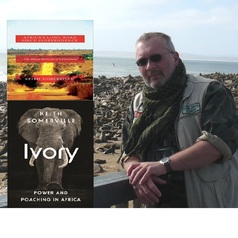
Keith Somerville
Visiting professor, University of Kent
Professor Keith Somerville is a writer and lecturer on African affairs, journalism and the global media. In January 2013, he was appointed as a Senior Research Fellow at the Institute of Commonwealth Studies at the University of London. He teaches the Communications and Humanitarianism and Propaganda modules at the Centre for Journalism at the University of Kent.His book, Africa’s Long Road Since Independence. The Many Histories of a Continent has just been published by Hurst and Co and his work on the history of the ivory trade in Africa – Ivory. Poaching and Power in Africa will be published at the end of 2016. . Professor Somerville founded and runs the Africa, News and Analysis website.
Keith writes on Africa’s military and political affairs; the politics of conservation in Africa; Africa and the media; the history and use of propaganda and hate broadcasting; analysing the global media and its coverage of major world events; finding and developing stories; news and feature writing; interview techniques; broadcast and online news reporting and production; media law and ethics, and international journalism.
He has specialist knowledge of African politics and military/strategic issues; foreign intervention in Africa; environmental and wildlife issues in Africa and beyond; Marxism and the foreign policy of the former Soviet Union; and rugby (he has years of playing and team captaincy experience and is an RFU-qualified rugby coach). His current research interests are the contemporary history of Africa in light of the interplay bet ween structure and human agency; radio propaganda in apartheid South Africa; and the links between insurgency, organized crime and poaching in central and southern Africa
A career journalist with the BBC World Service and BBC Newsi for three decades, Keith has an established track record as a trainer and training designer for the BBC, initially with BBC World Service training and latterly with the recently-established BBC College of Journalism. He was executive producer for the BBC’s international award-winning Legal Online course; co-author and role-play developer for the BBC’s post-Hutton Sources, Scoops and Stories course; he in charge of and the scenario writer for the BBC’s interactive journalism teaching tool, The Journalism Tutor.
His knowledge of journalism theory and practice is based on nearly three decades of reporting, writing, presenting and editing World Service news programmes. He also has extensive online production experience and has written for specialist publications on African affairs.
The major world events he has covered include running the World Service team in South Africa for the first post-apartheid elections in 1994; presenting live coverage of the attempted coup against Soviet President Mikhail Gorbachev; overseeing the first 10 hours of World Service coverage of the death of Princess Diana; running of live World Service radio coverage on 9/11; and producing and presenting radio documentaries from South Africa, Angola, Botswana, Tanzania, Namibia, Zambia, Zimbabwe, Guyana, Barbados, Jamaica and the wilds of deepest Cardiff and Norfolk.
Keith has an extensive publication record on African continental and international politics.
From 2012 to 2014 he taught the Humaniatarian Communications module and a module on Conflict and Security in Africa in the School of Politics and International Studies at the University of Kent. From 2008 to 2011, he taught journalism at undergraduate and postgraduate level at Brunel University and was BA (Hons) Journalism course leader and Admissions Tutor for the MA in International Journalism. He was educated at St Clement Danes Grammar School, the University of Southampton, the University College of Wales, Aberystwyth, and Brunel University.
Less ![]()
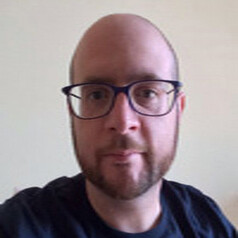
Keith A. Preble
Visiting Assistant Professor of Political Science, Miami University
Since August 2022, Keith A. Preble has been a visiting assistant professor of political science at Miami University (Oxford, OH).
He received his PhD in Political Science from the Department of Political Science at Rockefeller College of Public Affairs and Policy at the University at Albany, State University of New York with a focus on international relations and comparative politics in December 2021.
His dissertation, entitled “Economic sanctions and opportunism,” explores the ways in which third-party states and their firms take advantage of opportunities that emerge when economic sanctions and arms embargoes are implemented. His dissertation was also awarded the Rockefeller College Distinguished Doctoral Dissertation Award in 2022.
Less ![]()
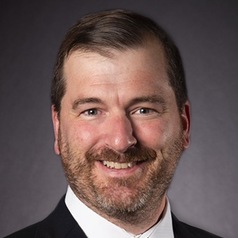
Keith L. Carter
Associate Professor of Political Science, US Naval War College
Keith L. Carter received his Ph.D. in Political Science from the University of Pennsylvania in 2019. His research agenda encompasses strategic competition, the impact of societal and technological trends on military organizations and security operations, and civil-military relations with regards to U.S. institutions, force design, and force employment. Keith is a retired Army officer, whose military career spanned over two decades and included multiple command assignments, service in special operations, and eight combat tours.
Less ![]()
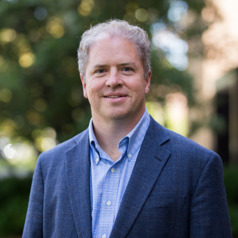
Keith N. Hampton
Professor of Media and Information and Interim Director of the Quello Center, Michigan State University
Keith N. Hampton, Ph.D., is a Professor in the Department of Media and Information and Interim Director of the Quello Center for Telecommunication Management and Law at Michigan State University. Dr. Hampton is a network scholar who studies community, with a focus on digital media and social inequality. His research investigates the connections between digital access and disparities in areas such as gender, education, and well-being. He has examined how variation in the use of digital media (i.e., social media, video games, etc.,), digital skills, parental mediation, and access inequalities influence outcomes, particularly in rural communities. Dr. Hampton's research has received a number of awards. This includes the 2022 Career Achievement Award from the Section on Communication, Information Technologies, and Media Sociology of the American Sociological Association. In 2017 he was elected a member of the Sociological Research Association. Hampton's prior faculty appointments include Rutgers University, the University of Pennsylvania, and the Massachusetts Institute of Technology.
Less ![]()
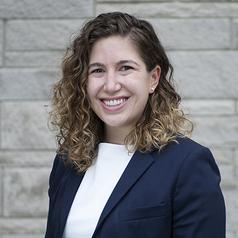
Kelley Gullo Wight
Assistant Professor of Marketing, Indiana University
Professor Wight joined the Marketing Department at the Kelley School of Business in July 2020. She earned her Ph.D. in Marketing from Duke University. Kelley is an experimental researcher, focusing on how time and close relationships impact consumer behavior and well-being. Kelley's research has been published in premier marketing journals, including the Journal of Consumer Research, the Journal of Marketing Research, the Journal of Consumer Psychology, and the Journal of Public Policy & Marketing.
Professor Wight teaches undergraduate Digital Marketing and Consumer Behavior Research. She also served as an Editorial Assistant for the Journal of Marketing Insights for the Classroom initiative from 2018-2020, helping authors translate their research findings into cutting-edge insights to be taught in classrooms.
Less ![]()
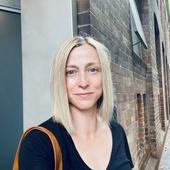
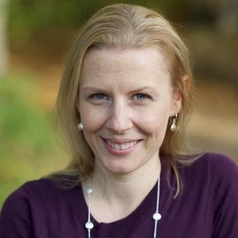
Kelly Bjorklund
PhD Candidate, Staffordshire University
Kelly is a PhD researcher at Staffordshire University, focusing on how journalists have been targeted by states during conflicts, if and how established codified norms are changing, and what the effects are.
A faculty member at the University of Colorado’s College of Media, Communication and Information, Kelly serves as a Lecturer in Communication. She also teaches Media, Culture, and Identity at the University of Florida, an interdisciplinary course that analyzes how the media represents groups, identities, and issues and how these representations can impact opinions and behaviors.
A working journalist, Kelly is a senior writer and editor for Radio Free Europe/Radio Liberty, which provides news and information to countries without a free press. As a contributor to Foreign Policy Magazine, she investigates and analyzes complex international issues. Kelly spent seven years reporting about human rights, international relations, and security for Radio Free Asia.
In addition to academia and journalism, Kelly has been engaged with multiple international human rights NGOs and civil society organizations on communications, policy, and strategic planning.
Her topical expertise is in human rights; press freedom and freedom of expression; disinformation/misinformation; media and democracy; political and non-profit communication; and media, culture, and identity.
Less ![]()

Kelly Fincham
Lecturer in Journalism and Communications, University of Galway
I’m the programme director for the Global Media and Communication MA at National University Ireland Galway and I also teach journalism (social media) in the undergraduate and graduate programmes with a focus on social and digital journalism and media theory.
My research agenda is focused on the ways in which social media have impacted journalism and I am particularly interested in the ways that bad-faith actors are weaponising journalism norms in a social and digital media context. I draw from Andrew Chadwick’s hybrid media theory in understanding how social media has created new ways that information can flow in a hybrid media environment.
Less ![]()
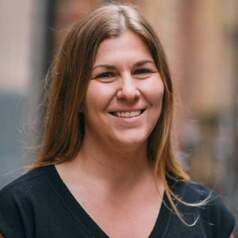
Kelly Gregg
Assistant Professor of Urban Planning, University at Buffalo
Kelly Gregg, assistant professor of urban planning, pursues place-based research at the intersection of planning, urban design, and landscape architecture. Specifically her work focuses on street design and pedestrian environments in both an historic and contemporary context. Her current research includes examining recent street adaptations to enable physical distancing during the coronavirus pandemic. She strives to approach challenges in practice and in research with an interdisciplinary perspective that references her background in both planning and design. She completed her PhD in Planning at the University of Toronto in 2019. She also holds a Master's Degree in Urban Planning (MUP) and Urban Design (MUD) from The University of Michigan and a Bachelor of Landscape Architecture (BLA) from The Pennsylvania State University.
Her publications from 2019 include a chapter co-authored with Paul Hess PhD that was published in the New Companion to Urban Design edited by Tridib Banerjee and Anastasia Loukaitou-Sideris. Additionally, part of her dissertation work on pedestrian malls was published in the journal Planning Perspectives. And a co-authored article on ‘Complete Street’ municipal policy was in the International Journal of Sustainable Transportation.
Prior to joining the faculty at Buffalo, Gregg taught first-year common core courses for planning, landscape architecture, and architecture students at Ball State University. Her other previous experience includes work at the University of Cincinnati, where Kelly managed technical service projects, program development, and assisted with studio teaching at the Niehoff Urban Studio and Community Design Center. Additionally, she worked at The Graham Sustainability Institute at the University of Michigan and assisted the Detroit Climate Action Collaborative (DCAC) in developing a community lead climate action plan for the City of Detroit. Gregg has also worked on urban design visioning for climate adaptation in Manhattan, NY. This collaborative work was featured in The Atlantic Cities shortly after Hurricane Sandy in December 2012.
Less ![]()
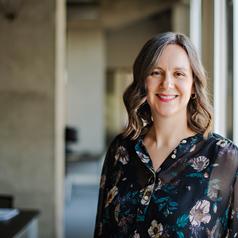
Kelly Grindrod
Associate Professor, School of Pharmacy, University of Waterloo
Dr. Grindrod is a pharmacist and pharmacy professor at the University of Waterloo School of Pharmacy. Dr. Grindrod completed her BScPharm at the University of Alberta, her Masters and Doctoral degrees in pharmacy at the University of British Columbia, and a hospital pharmacy residency at the the London Health Sciences Centre. Here work focuses on using technology to educate healthcare providers and the public on the use of medicines, including drugs and vaccines.
Less ![]()
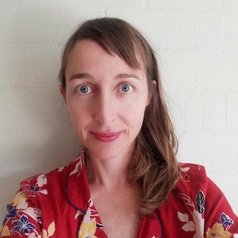
Kelly Saunders
PhD Candidate, University of Canberra
Kelly Saunders is a lawyer and PhD Candidate at the University of Canberra in the field of Futures Studies.
Less ![]()
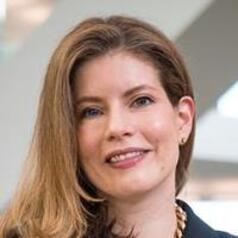
Kelly Summers
Assistant Professor of History, Department of Humanities, MacEwan University
I specialize in the history of France from the Old Regime through the Napoleonic era. My research on revolutionary migration examines issues that still resonate today: how individual liberties and national security conflict during times of political upheaval; how revolutions end; and how, in their aftermath, divided populations might be reconciled. I am currently completing a book entitled The Great Return: Émigrés, Refugees, and Revolution in France, 1789-1815, which will for the first time chart the complete life cycle of emigration, refuge, and re-migration during the French revolutionary era.
Less ![]()
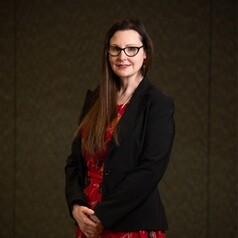
Kelly Ann Blake
Gherrang/Biodiversity Project Officer, Wadawurrung Traditional Owners Aboriginal Corporation, Indigenous Knowledge
Kelly Ann Blake is a Wadawurrung Woman and Biodiversity Project Officer at the Wadawurrung Traditional Owners Aboriginal Corporation.
Less ![]()
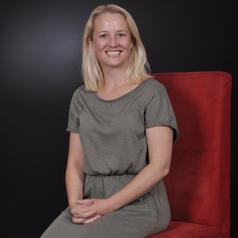
Kelly Anne Young
Senior Researcher, University of South Africa
Dr. Kelly Young is a senior researcher in the Institute for Open and Distance Learning (IODL) at the University of South Africa (UNISA) with an academic background in Psychology. Her interests are centred primarily on student success models and predictions in the context of South African higher education and specifically in distance education. She has written papers appearing in journals such as the Journal of Psychopathology and Behavioural Assessment and the South African Journal of Education on topics ranging from psychometric analyses to cyberbullying. Dr. Young completed her doctoral degree at UNISA under the supervision of Dr. Angelo Fynn and Prof. Elizabeth Archer. Her thesis examined psychological grit and its efficacy in determining student retention among postgraduate students enrolled at a South African distance education institution.
Less ![]()
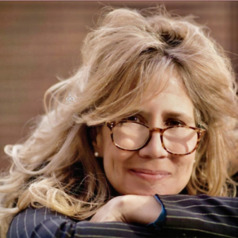
Kelly M Greenhill
Associate Professor and Senior Research Fellow at Tufts University and at MIT, Massachusetts Institute of Technology (MIT)
Kelly M. Greenhill is a professor of international relations and security studies, with faculty appointments at Tufts University and at MIT, where she also directs the MIT-Seminar XXI Program. Greenhill's research follows four intersecting and overlapping lines of inquiry: the politics of information; migration, refugees and security; military intervention and operations; and coercion and asymmetric influence.
Less ![]()
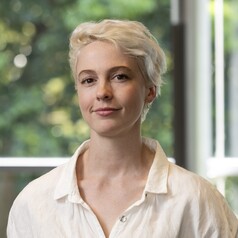
Kelsey Adams
PhD candidate, Queensland University of Technology
Kelsey Adams is a PhD candidate at the School of Justice at QUT. She is an interdisciplinary scholar in psychology and criminology. Her thesis, Understanding the Rape Acknowledgment Process: A Follow-up Study (submitted 2024) explored rape survivors’ journeys of labelling personal experiences of sexual violence. She spoke to her PhD findings at TEDxQUT 2023.
Kelsey holds a Bachelor of Psychological Science from UQ.
Less ![]()
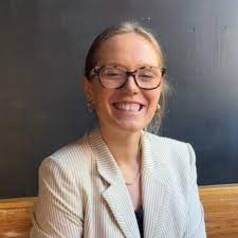
Kelsey Garrison
PhD student, Department of Sport Management, University of Florida
Kelsey Garrison is a PhD student and a Graduate Assistant at the Department of Sport Management at the University of Florida. She earned her Bachelor of Arts in Sport Management with a minor in Digital Sports Media at Belmont Abbey College. Her research focus is on diversity and inclusion in sport, with a focus on the gender and LGBTQ+ community. She has a keen interest in pursuing pedagogy and currently tutors student athletes in multiple subject areas.
Less ![]()
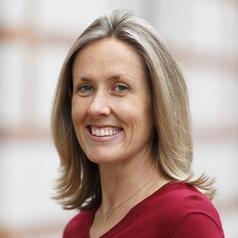
Kelsey Norman
Fellow for the Middle East, Rice University's Baker Institute for Public Policy, Rice University
I am a Fellow for the Middle East and Director of the Women's Rights, Human Rights and Refugees program at Rice University's Baker Institute for Public Policy. My book, 'Reluctant Reception: Refugees, Migration and Governance in the Middle East and North Africa,' was published by Cambridge University Press in 2021.
Less ![]()

Kelsey Pukelis
Ph.D. Student in Public Policy, Harvard Kennedy School
I am a Ph.D. student in Public Policy at the Harvard Kennedy School. I am an empirical public economist, with secondary fields in labor and behavioral economics. I am particularly interested in the relationship between the social safety net and work. My current research focuses on the Supplemental Nutrition Assitance Program (SNAP): the largest nutrition assistance program in the U.S. I have studied the impact of work requirements on employment and earnings, and I am currently studying the effects of drastic administrative changes to SNAP since the COVID-19 pandemic and the nature of stigma associated with the program. I primarily apply quasi-experimental methods to publicly available and administrative data. More broadly, I am also interested in applied econometric methods and the effect of social norms and pressures on individual behavior. By acquiring deep contextual knowledge and applying insights from other social sciences into economics, my goal is to deepen our understanding of the consequences of policy design choices in part by incorporating the perspective of individuals who are affected by them.
I am a James M. and Cathleen D. Stone PhD Scholar in Inequality and Wealth Concentration in Harvard University's Multidisciplinary Program in Inequality & Social Policy and an awardee of the National Science Foundation's Graduate Research Fellowship Program. During the summer of 2020, I worked as a Research Intern at Microsoft Research New England. Prior to graduate school, I was a Research Specialist Intermediate at the University of Virginia's Frank Batten School of Leadership and Public Policy. In 2017, I earned a B.A. with honors in Mathematical Methods in the Social Sciences, Economics, and Mathematics from Northwestern University.
Less ![]()

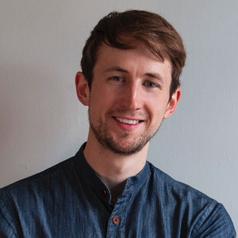
Kelton Minor
Postdoctoral Research Scientist, Computational Social and Behavioural Science, Columbia University
Dr. Kelton Minor applies data science to study how humans adapt to planetary changes and climate stressors.
Less ![]()
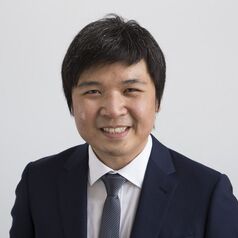
Kelvin Anggara
Group leader in Single molecule imaging, Max Planck Institute for Solid State Research
I have worked for ~10 years in the field of single molecule imaging. Using a tool called 'Scanning Tunnelling Microscopy', I was able to study chemical reactions on surfaces one-molecule-at-a-time. I recently extended the use of such microscope to determine structures of carbohydrate-decorated proteins and lipids - also known as glycoconjugate - as they are key molecules in many biological functions - and dysfunctions.
I started my PhD in 2013 at the University of Toronto under Prof. John C. Polanyi (Nobel Laureate in Chemistry in 1986). Graduated in 2018, I joined Prof. Klaus Kern at the Max Planck Institute for Solid State Research, Stuttgart, Germany as Alexander von Humboldt postdoctoral fellow. Since 2023, I have started my own research group funded by the European Research Council.
Less ![]()
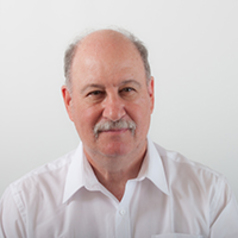
Ken Rotenberg
Professor in Psychology, Keele University
I was appointed Professor to the School of Psychology in September 1999. Previously I was a Chair (Head) of the Department of Psychology at Lakehead University in Thunder Bay Ontario, Canada. I was an Assistant and then Associate Professor in that department for 16 years. I received my: (a) first degree (Honours BA) at the University of Waterloo, (b) my second degree (MA) from the University of Guelph, and (c) my final degree (Ph.D.) from the University of Western Ontario. I received all degrees in the field of psychology. I am a member of the Institute of Life-Course Studies.
My area of expertise spans Social Psychology and Social Development. Currently, I am conducting research on: (a) the factors contributing to, and the consequences of, loneliness across development; (b) the factors contributing to, and the consequences of, trust across development and cultures; (c) the effects of the characteristics of defendant and jury members on jury deliberations; (d) trust in legal professionals; (e) the implications of children’s trust in health professions for medical treatment; (f) the effects of written emotional expression on early adolescents’ health, and (g) the relation between attribution styles and eating disorders.
Less ![]()
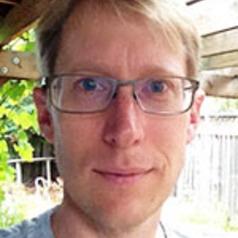
Ken Wharton
Professor of Physics and Astronomy, San José State University
Ken Wharton is a professor in the Department of Physics and Astronomy at San Jose State University. Initially an experimentalist, since 2007 his research focus has been in Quantum Foundations, devising models of what might really be happening down at the quantum scale, even when we're not looking. He has also written a number of popular science pieces, appearing in venues such as New Scientist, Aeon, and Nautilus.
Less ![]()
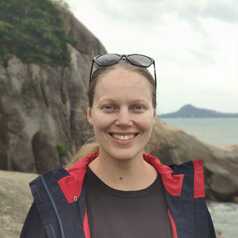
Kendall Mollison
Postdoctoral researcher, University of Newcastle
Dr Kendall Mollison is a postdoctoral researcher in the School of Environmental and Life Sciences at the University of Newcastle. Kendall's research focuses on coastal and marine tsunami hazard.
Less ![]()

Kendra Nixon
Professor, Faculty of Social Work & Director, RESOLVE (Research and Education for Solutions to Violence and Abuse), University of Manitoba
Dr. Nixon’s research has primarily focused on policies aimed at reducing violence, as well as institutional responses to intimate partner violence, including the child welfare and criminal justice systems. Dr. Nixon is also the Director of RESOLVE, a tri-prairie research network on family and gender-based violence.
Less ![]()
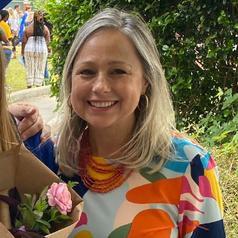
Kendra Stewart
Professor of political science and public administration, College of Charleston
Less ![]()
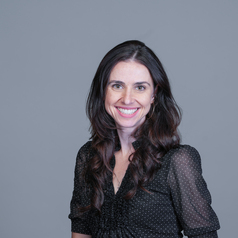
Kendra Thomas
Associate Professor of Psychology, Hope College
Kendra Thomas is an Associate Professor of Psychology at Hope College. She researches character development among parents of young children (in a Zulu South African community) and in elementary schools (in Brazilian public education). Kendra looks for contextual and relational variables that influence longitudinal change. She is particularly curious about how adolescents grapple with (in)justice and how people can develop hope in complex circumstances.
Less ![]()

Kenjus T. Watson
Assistant Professor of Urban Education, American University
Kenjus Watson (he/him) is a father, partner, brother, uncle and son who is passionate about reaching back to grounded wisdom, seeding into present challenges, and bridging towards more loving and sustainable futures. As a Assistant Professor in Urban Education at American University, he teaches courses in the EdD Educational Policy and Leadership Program and collaborates across the School of Education. Watson also works alongside community responsive projects as research lead, educator, and co-founder of the Institute for Regenerative Futures in the College of Education at San Jose State University. His interdisciplinary research has focused on the biopsychosocial impact of everyday anti-blackness and colonization (i.e., racial microaggressions) on Black, Indigenous, and other People of Color, as well as the promise of school abolition, re-Indigenization, and apocalyptic education to bring about healing and wellness for people and the planet. Kenjus earned his PhD in Education with an emphasis in Race and Ethnic Studies at UCLA.
Less ![]()
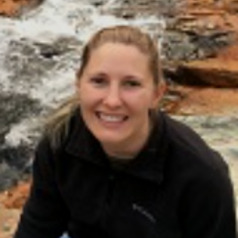
Kenna Lehmann
Postdoctoral Fellow, University of Nebraska-Lincoln
I study the interdependencies and connections among sociality, communication, and cooperation. Modeling suggests that communication and cooperation can be stabilized by social interactions. At the same time, we know communication reduces the potential costs of intergroup competition and cooperation is a way to realize the benefits of sociality. Further, a number of evolutionary hypotheses predict that complexity in one of these three leads to or requires complexity in another. My work uses observations of and experiments with wild and captive animals to tease apart the factors governing how these complex behaviors evolve and interact.
As a PoE Fellow, I am working with Dr. Eileen Hebets to study the cooperative hunting behavior of a social pseudoscorpion (Paratemnoides nidificator) and the neural development and intelligence of the amblypygid (Phrynus marginemaculatus). Paratemnoides nidificator lives in colonies, shares parental care, and hunts large insects. Their unique social structure allows us to ask questions about how social ties and communication signals affect their ability to cooperate to obtain food. From this, we can determine whether social bonds built up over time or signals emitted during hunting are more important for cooperation. Our work with P. marginemaculatus tests two popular hypotheses for the evolution of large brains in primates: environmental complexity and social complexity.
Less ![]()
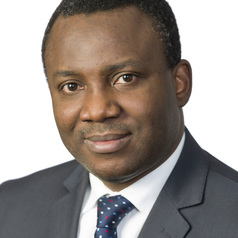
Kenneth Amaeshi
Kenneth Amaeshi, PhD . Associate Professor of Strategy & International Business, Head of Strategy Group, and Director of the Sustainable Business Initiative, University of Edinburgh Business School, UK
Dr Kenneth Amaeshi is an Associate Professor of Strategy & International Business, Head of the Strategy Group, and the Director of the Sustainable Business Initiative (http://www.business-school.ed.ac.uk/sbi) at the University of Edinburgh Business School. He researches, teaches and consults in the broad area of Corporate Social Responsibility, Sustainability Strategy, and Policy Innovation. He is currently leading an international research project on Africapitalism, which explores the role of the private sector in Africa's development. He holds a PhD in International Business and Political Economy from the University of Warwick, UK, where he is also a Research Associate of the Centre for the Study of Globalization and Regionalization. Dr. Amaeshi is a Visiting Faculty of the Doughty Centre for Corporate Responsibility, Cranfield School of Management, UK, and a Visiting Professor at the Lagos Business School, Pan-Atlantic University, Nigeria.
More general information on Dr. Amaeshi can be found on this website: http://www.business-school.ed.ac.uk/about/people/738/Kenneth/Amaeshi
Less ![]()
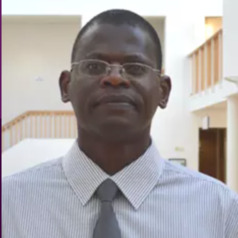
Kenneth Awinda
Senior Lecturer, School of Civil Engineering and Surveying, University of Portsmouth
I am a Senior Lecturer and Associate Head in the School of Civil Engineering and Surveying. I am also a Chartered Civil Engineer having previously spent over 10 years in industry as an engineer and project manager for major consultants and contractors including Capita Symonds, Balfour Beatty and John Laing Ltd. My current research interests are in construction materials and in construction engineering and management.
Less ![]()
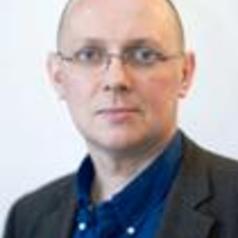
Kenneth Gibb
Professor of Housing Economics and Director, UK Collaborative Centre for Housing Evidence, University of Glasgow
Ken is a professor in the School of Social and Political Sciences in the subject area of Urban Studies. He has been a full time member of staff at the University in various guises since 1989. He became a professor in 2006. Ken was also Head of the Department of Urban Studies from 2005 to 2010 and associate dean of the Faculty of Law, Business and Social Sciences in 2009-10. After four years as Director of Policy Scotland, he is now Director of the UK Collaborative Centre for Housing Evidence.
Ken's research interests are focused on the economic, financial and policy dimensions of housing. He has carried out research for government departments, ESRC, Joseph Rowntree Foundation, trade bodies, the private sector and international organisations like OECD. His current interests are on the financing and economics of social and affordable housing, and, the application of behavioural economics to housing.
Ken was managing editor of the Urban Studies journal for a decade. He was president of RC43 (housing) of the International Sociological Association and is a former president of the European Real Estate Society. He sits on four editorial advisorial boards. He was a visiting professor to the University of Amsterdam in 2011. He has acted as an advisor to the Scottish Parliament's Infrastructure and Capital Investment Committee and given evidence to other similar Parliamentary committees..
He is chair of Sanctuary Scotland housing association.
Ken regularly blogs on housing and related policy matters at http://wordpress.kengibb.com.
Less ![]()
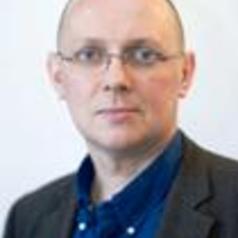
Kenneth Gibb
Professor of Housing Economics, University of Glasgow
Studies. He has been a full time member of staff at the University in various guises since 1989. He became a professor in 2006. Ken was also Head of the Department of Urban Studies from 2005 to 2010 and associate dean of the Faculty of Law, Business and Social Sciences in 2009-10. He is now Director of Policy Scotland, the University's hub for policy research and knowledge exchange.
Ken's research interests are focused on the economic, financial and policy dimensions of housing. He has carried out research for government departments, ESRC, Joseph Rowntree Foundation, trade bodies, the private sector and international organisations like OECD. His current interests are on the financing and economics of social and affordable housing, and, the application of behavioural economics to housing.
Ken was managing editor of the Urban Studies journal for a decade. He was president of RC43 (housing) of the International Sociological Association and is a former president of the European Real Estate Society. He sits on four editorial advisorial boards. He was a visiting professor to the University of Amsterdam in 2011. He has acted as an advisor to the Scottish Parliament's Infrastructure and Capital Investment Committee and given evidence to other similar Parliamentary committees..
After a period as chair of Sanctuary Scotland housing association, Ken is currently a non-executive director of Sanctuary housing association.
Ken regularly blogs on housing and related policy matters at http://wordpress.kengibb.com.
Less ![]()
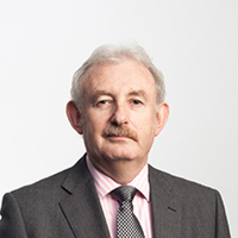
Kenneth Grattan
Professor Grattan graduated in Physics from Queen's University Belfast with a BSc (First Class Honours) in 1974, followed by a PhD in Laser Physics. His doctoral research involved the use of laser-probe techniques for measurements on potential new laser systems.
Following Queen's, in 1978 he became a Research Fellow at Imperial College of Science and Technology, sponsored by the Rutherford Laboratory to work on advanced photolytic drivers for novel laser systems. This involved detailed measurements of the characteristics and properties of novel laser species and a range of materials involved in systems calibration.
In 1983 he joined City University London as a "new blood" Lecturer in Physics, being appointed Professor of Measurement and Instrumentation in 1991 and Head of the Department of Electrical, Electronic and Information Engineering. From 2001 to 2008 he was the Associate and then Deputy Dean of the School of Engineering and from 2008 to 2012 the first Conjoint Dean of the School of Engineering & Mathematical Sciences and the School of Informatics. In 2013 he was appointed the Inaugural Dean of the City Graduate School. He was appointed George Daniels Professor of Scientific Instrumentation in 2013 and to a Royal Academy of Engineering Research Chair in 2014.
His research interests have expanded to include the development and use of fibre optic and optical systems in the measurement of a range of physical and chemical parameters. The work has been sponsored by a number of organizations including EPSRC, the EU, private industry and charitable sources, and he holds several patents for instrumentation systems for monitoring in industry using optical techniques. He obtained the degree of Doctor of Science (DSc) from City University in 1992 for his sensor work. Professor Grattan is extensively involved with the work of the professional bodies having been Chairman of the Science, Education and Technology of the Institution of Electrical Engineers (now IET), the Applied Optics Division of the Institute of Physics and he was President of the Institute of Measurement and Control during the year 2000. He has served on the Councils of all three of these Professional Bodies. He was awarded the Callendar Medal of the Institute of Measurement and Control in 1992, and twice the Honeywell Prize for work published in the Institute's journal as well as the Sir Harold Hartley Medal in 2012 for distinction in the field of instrumentation and control. He was awarded the Applied Optics Divisional Prize in 2010 for his work on optical sensing and the honorary degree of Doctor of the University of the University of Oradea in 2014.
He was elected President of the International Measurement Confederation (IMEKO) in 2014, serving from 2015 to 2018. He was elected to the Royal Academy of Engineering, the UK National Academy of Engineering, in 2008.
Professor Grattan has been Deputy Editor of the Journal Measurement Science and Technology for several years and currently serves on the Editorial Board of several major journals in his field in the USA and Europe. In January 2001 he was appointed Editor of the IMEKO Journal "Measurement" and also serves on their General Council. He is the author and co-author of over seven hundred refereed publications in major international journals and at conferences and is the co-editor (with Professor B T Meggitt) of a five volume topical series on Optical Fiber Sensor Technology. His work is highly cited by his peers nationally and internationally. He is a Visiting Professor at several major Universities in China, with strong links to Harbin Engineering University and the Shandong Academy of Sciences.
Professor Grattan has been a Member of the University Executive Committee (ExCo) since 2008 and chairs two of its sub-Committees, the University Sustainability Committee and the Business Continuity Management Committee. He has served on Senate for over 20 years, as well as many of its sub-Committees.
Less ![]()
- Market Data





















